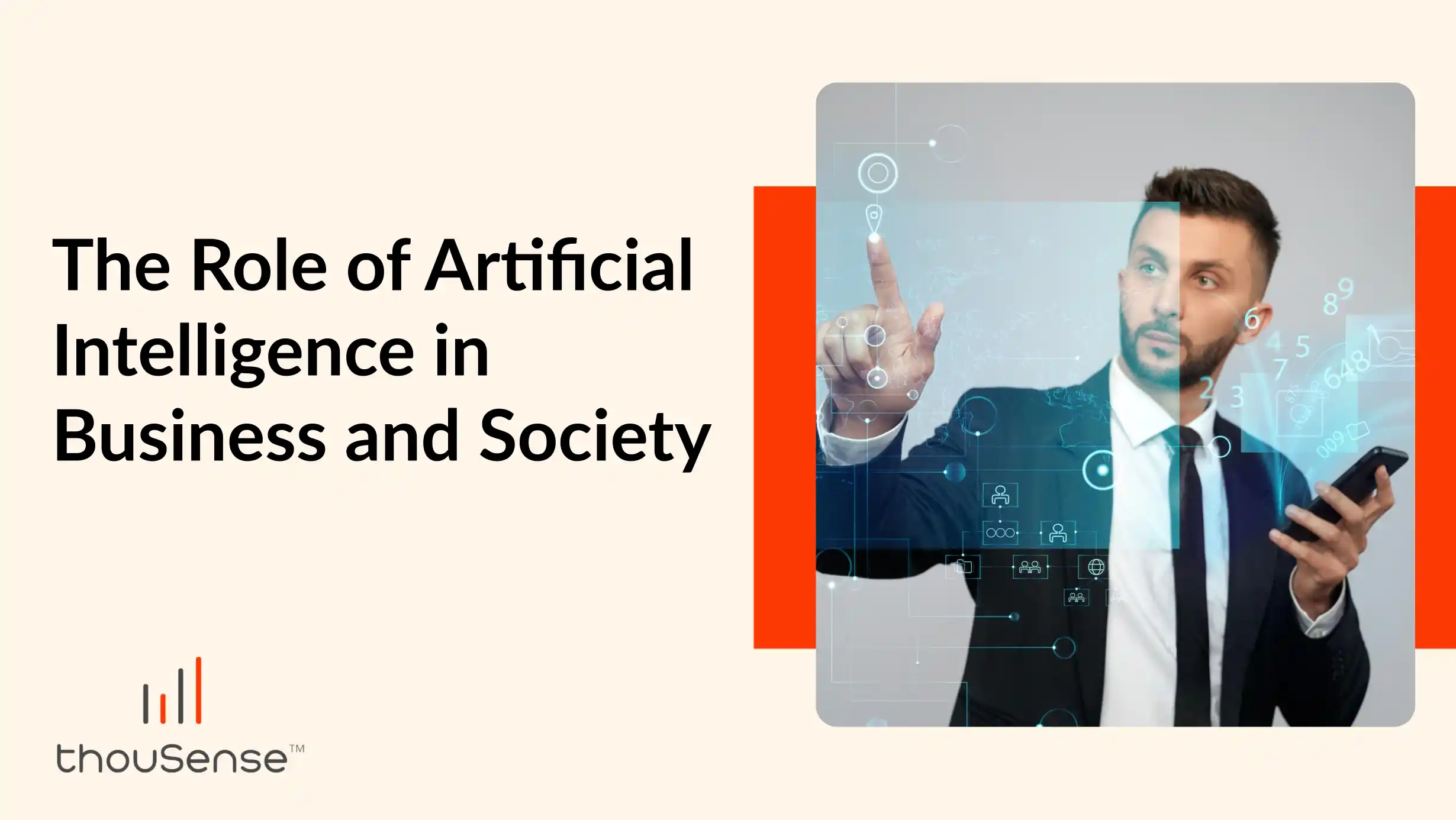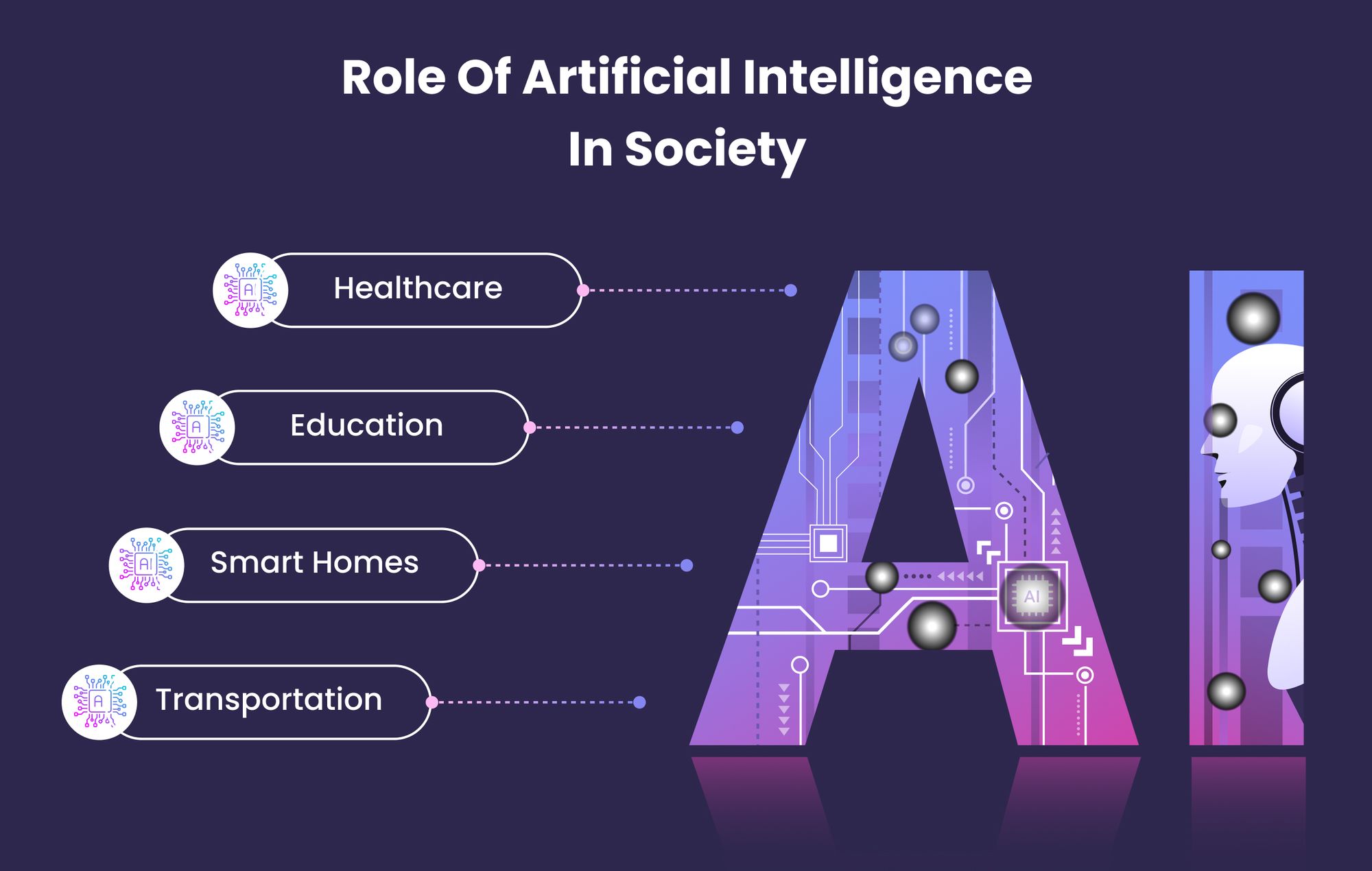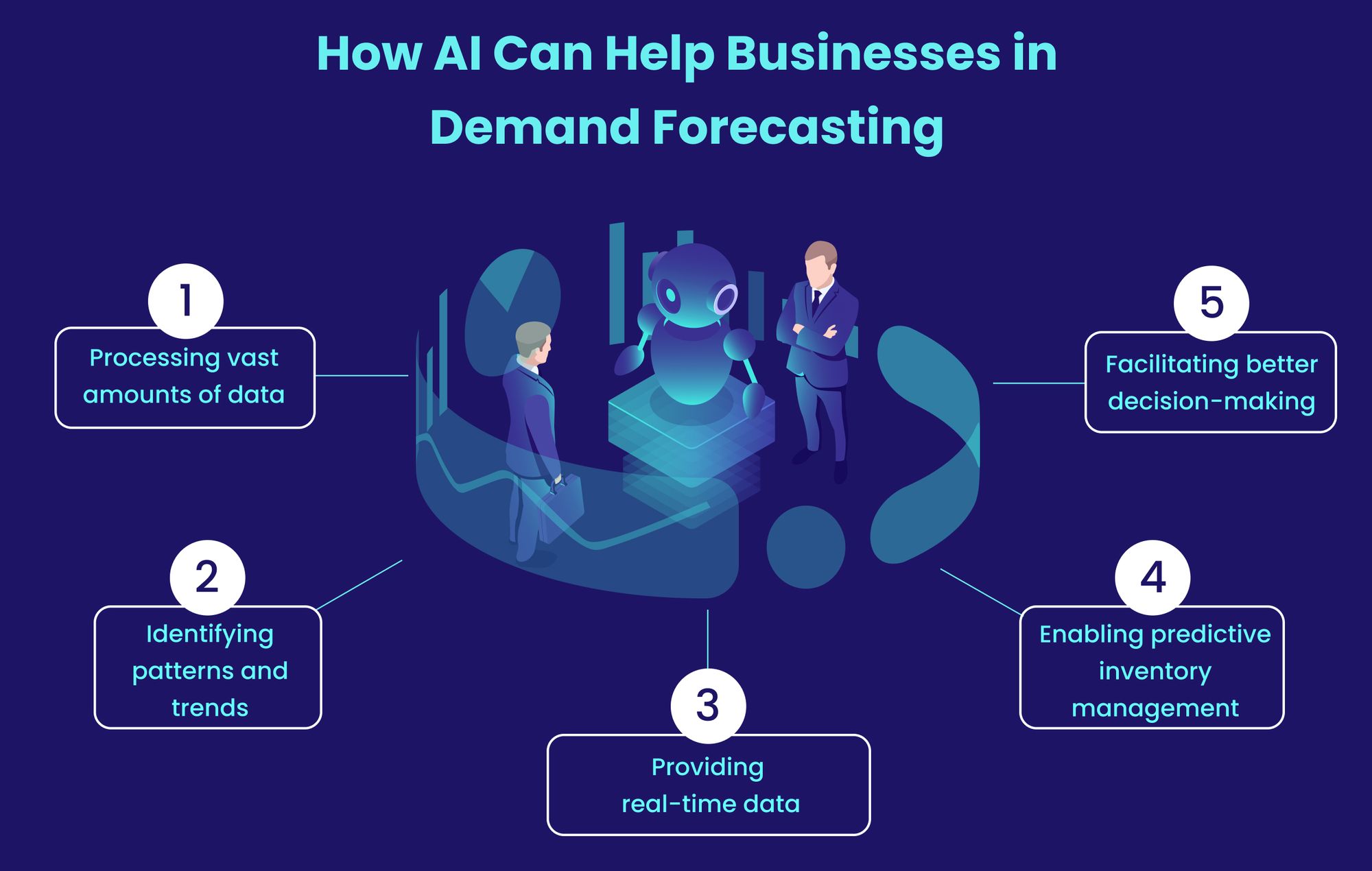The Role of Artificial Intelligence in Business and Society| thouSense

Artificial intelligence (AI) has become a buzzword in recent years, and it's no surprise that it's impacting both businesses and society. The rapid pace of technological advancements has allowed AI to become more accessible and affordable, and as a result, it's becoming increasingly integrated into our daily lives.
AI has the potential to revolutionize business and society in ways that were previously unimaginable. In this article, we'll take a closer look at the impact of artificial intelligence on business and society.
Artificial Intelligence in Business AI has already made significant inroads in the business world, and its impact is only going to increase in the years to come. Some of how AI is already being used in business include:
1. Business Decision-Making:
One of the most significant impacts of AI on business is its ability to make better decisions. With access to large amounts of data, AI algorithms can quickly analyze and make predictions about future trends and outcomes. This enables business leaders to make better-informed decisions and increase their chances of success.
2. Enhanced Customer Service:
AI-powered chatbots are already being used by many businesses to provide 24/7 customer service. These chatbots can answer customer queries, provide product recommendations, and even process transactions. As AI technology continues to improve, we can expect these chatbots to become even more sophisticated and provide an even better customer experience.
3. Improved Efficiency:
AI can automate many tasks that were previously done manually, saving businesses time and money. For example, AI-powered software can scan resumes and job applications, identify the most qualified candidates, and even schedule interviews. This saves HR teams countless hours of work and allows them to focus on more strategic tasks.
4. Forecasting:
Another significant impact of AI on business is its ability to forecast future trends. AI systems can analyse massive volumes of data and spot patterns without any bias. This allows businesses to make predictions about future trends, such as demand forecasting, and adjust their strategies accordingly.
While AI has the potential to bring significant benefits to businesses, it's not without its challenges. One of the biggest concerns surrounding AI is the potential for job losses as machines replace human workers. However, many experts believe that while some jobs will be lost, new jobs will be created in their place.
Artificial Intelligence in Society AI is not just impacting businesses; it's also changing society as a whole.
Role of Artificial Intelligence in Society:

1. Healthcare:
AI algorithms can analyze medical images and identify potential health problems, such as tumours. This allows doctors to make faster and more accurate diagnoses and provide better treatment options.
2. Education:
AI is also being used in education to personalize learning experiences for students. AI algorithms can analyze data about a student's learning style and create customized lesson plans that cater to their individual needs. This can help students learn more effectively and improve their overall academic performance.
3. Smart Homes:
AI-powered devices are becoming increasingly popular in homes around the world. Smart home devices, such as thermostats and security systems, can learn a homeowner's preferences and adjust settings accordingly. This makes homes more energy-efficient and secure, and it also provides a more convenient and comfortable living experience.
4. Transportation:
AI is also having an impact on transportation, with self-driving cars and trucks becoming more common. These vehicles use AI algorithms to navigate roads and make decisions about speed, braking, and steering. This technology has the potential to make transportation safer, more efficient, and more environmentally friendly.
How AI Can Help Businesses in Demand Forecasting:

1. Processing vast amounts of data:
Businesses generate and collect a massive amount of data, including sales figures, customer demographics, website traffic, and social media metrics. AI algorithms can process and analyze this data quickly and accurately, providing valuable insights into consumer behaviour and trends.
2. Identifying patterns and trends:
AI algorithms can identify patterns and trends that humans might miss. By analyzing historical data, AI algorithms can detect seasonality, trends, and anomalies, providing a more accurate forecast of future demand.
3. Providing real-time data:
AI can provide real-time data on consumer behaviour and demand, allowing businesses to make faster decisions and respond to changes in demand more quickly. For example, if a sudden spike in demand occurs, AI can alert businesses to take action, such as increasing production or adjusting pricing.
4. Enabling predictive inventory management:
By accurately forecasting demand, businesses can optimize their inventory management and reduce the risk of overstocking or understocking. AI can provide real-time data on inventory levels and demand, enabling businesses to adjust their inventory levels accordingly and reduce waste.
5. Facilitating better decision-making:
By providing accurate and real-time data on demand, AI can help businesses make better-informed decisions. This can include decisions related to pricing, marketing, and product development. By optimizing their operations based on accurate data, businesses can increase profits and gain a competitive edge.
In conclusion, artificial intelligence (AI) is having a significant impact on both businesses and society, and its influence is only going to increase in the future. AI has the potential to revolutionize many aspects of our daily lives, from improving decision-making and customer service in businesses to enhancing healthcare and education in society. While there are concerns about job losses as AI replaces human workers, experts believe that new jobs will be created in their place. As AI technology continues to improve, we can expect it to bring even more benefits and opportunities for businesses and society as a whole.